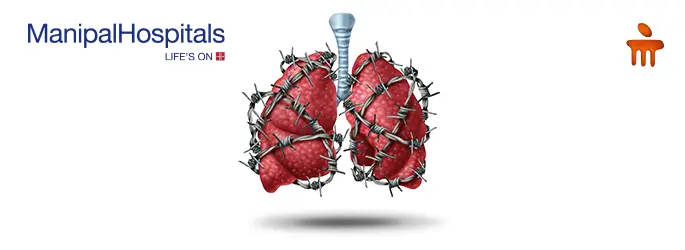Does COVID 19 cause long-term effects like lung fibrosis?
It depends on the severity of COVID 19, Most of the COVID 19 infected people are mild and moderate requiring oxygen for a few days, and they recover within four to six weeks without scarring of lungs.
However, people with severe COVID 19 requiring prolonged ICU stay with ventilator support might have sequelae like restrictive lung disease with lung fibrosis and a decrease in diffusion capacity of lungs which might limit the exercise capacity of the lungs.
How to prevent lung fibrosis?
So far, the best intervention to prevent lung fibrosis is early diagnosis of COVID 19 and timely treatment with antivirals like remdesvir and favipiravir and to some extent anti-inflammatory drugs like steroids.
Role of antifibrotics for lung fibrosis due to COVID 19?
Once it is progressed to severe lung insult and requiring prolonged ICU stay, well-known agents like Nintedanib and pirfenidone which were approved for treating Idiopathic pulmonary fibrosis are being tried with an uncertain mechanism of action in COVID 19, studies are currently underway to determine the efficacy of these drugs.
What other complications to look for?
As we see an increase in the thrombotic phenomenon in COVID 19 leading to large vessel stroke leading to permanent disability, Myocardial infarction, Pulmonary thromboembolism, limb ischemia, sudden painless loss of vision due to central retinal artery occlusion.
Early recognition and timely intervention with anticoagulants are paramount to prevent permanent disability and sudden death.
When to return to work?
Some people feel better and able to return to their normal routines within two weeks. For others, recovery will likely be slow especially if it is moderate or severe. Don’t rush into your recovery
Good health practices that keep your lungs functioning at their best, including eating healthy food, getting adequate rest, and avoiding exposure to smoke and air pollution.
Pulmonary rehabilitation is necessary to ease back into your prior activity levels, especially if your illness was prolonged and severe.
If someone has recovered from COVID-19, could they get reinfected again?
Several case reports had been published patients with COVID 19 who reportedly recovered, as proven by negative confirmatory testing, and experienced a subsequent short-term relapse of symptoms and positive viral testing
The exact circumstances of each case of recurrent infection are unique, it will be important associated with such occurrences, as well as their clinical and epidemiologic significance
It is too early to comment on the risk of reinfection to all but practicing infection control precautions(handwash, mask, physical distance) is paramount to effective vaccination.






